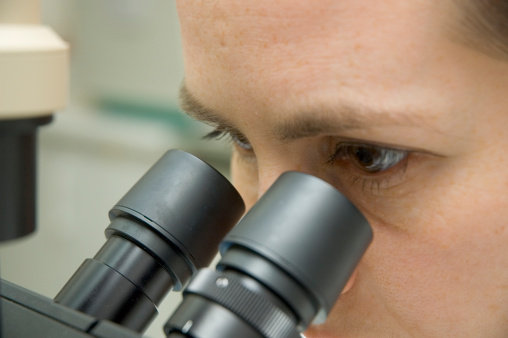COVID-19 updates from Auburn University


Joseph Giambrone, professor emeritus
Department of Poultry Science, College of Agriculture
Department of Pathobiology, College of Veterinary Medicine
Professor Emeritus Joseph Giambrone has penned this article about overcoming COVID-19 vaccine hesitancy, stating that, despite relaxation of masking and other social modalities, COVID-19 must be regarded as a serious disease given the number of cases and fatalities and long-term effects.
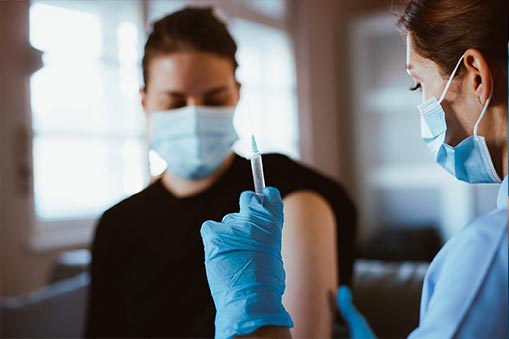
Joseph Giambrone, professor emeritus
Department of Poultry Science, College of Agriculture
Department of Pathobiology, College of Veterinary Medicine
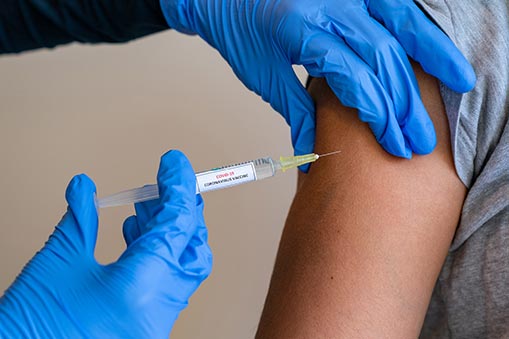
Joanna Sztuba-Solinska, assistant professor of biological sciences
Danilea Werner, associate professor of social work
Spencer Durham, associate clinical professor, Harrison School of Pharmacy
Auburn University professors Joanna Sztuba-Solinska, Spencer Durham and Danilea Werner weighed in on the topic, giving their thoughts about what the rest of the spring and summer may look like as the second year of the pandemic marches on.
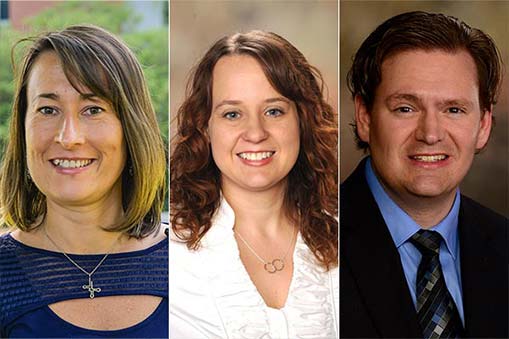
Bob Norton, chair of the Food System Institute’s Food and Water Defense Working Group, professor of poultry science
College of Agriculture
Professor Bob Norton discusses the importance of a safe and secure food chain, especially in connection with COVID-19 and cybersecurity. He says the pandemic has created problems, as well as opportunities, in the food and agriculture sector.
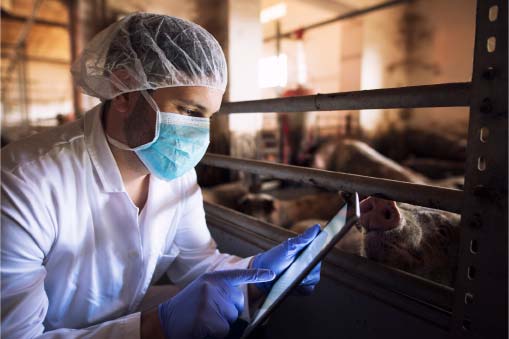
Joseph Giambrone, professor emeritus
Department of Poultry Science, College of Agriculture
Department of Pathobiology, College of Veterinary Medicine
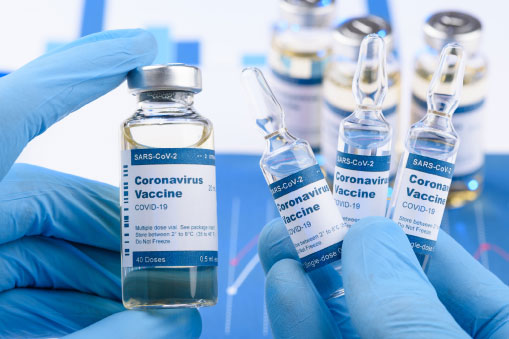
Joseph Giambrone, professor emeritus
Department of Poultry Science, College of Agriculture
Department of Pathobiology, College of Veterinary Medicine
Professor Emeritus Joseph Giambrone says present mitigations and improved testing and contact tracing will need to be in place for the foreseeable future.
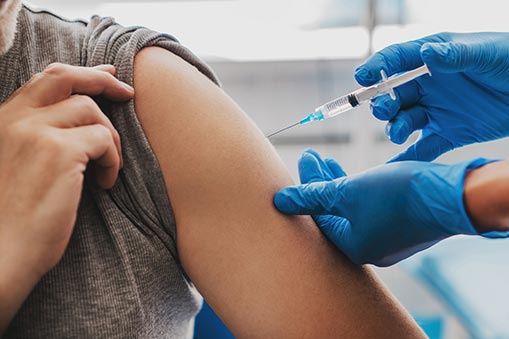
Joseph Giambrone, professor emeritus
Department of Poultry Science, College of Agriculture
Department of Pathobiology, College of Veterinary Medicine
Professor Emeritus Joseph Giambrone has penned this article about the challenges facing deployment of the first COVID-19 vaccines.
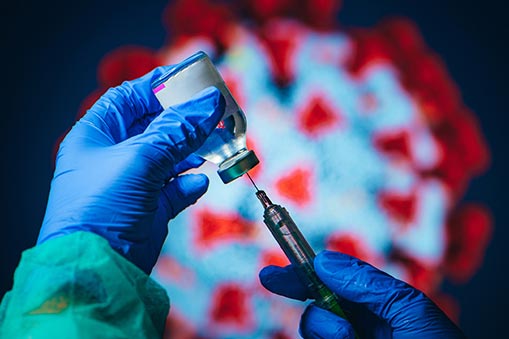
Joseph Giambrone, professor emeritus
Department of Poultry Science, College of Agriculture
Department of Pathobiology, College of Veterinary Medicine
Professor Emeritus Joseph Giambrone has penned an article about the science behind the leading COVID-19 vaccine candidates and when we can expect commercially available vaccine(s).
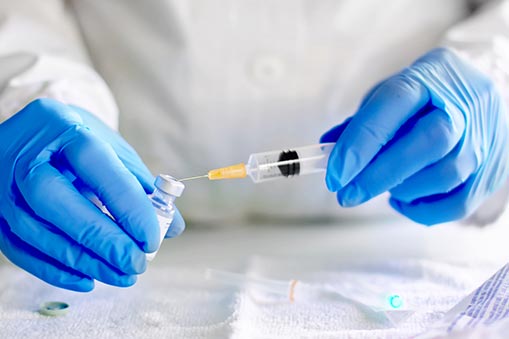
Glenn Richey, Harbert Eminent Scholar and chair of the Department of Supply Chain Management
Harbert College of Business
Professor Glenn Richey identifies supply chain issues embedded in the forthcoming delivery of approved COVID-19 vaccines and offers insight into what needs to be done to ensure success.
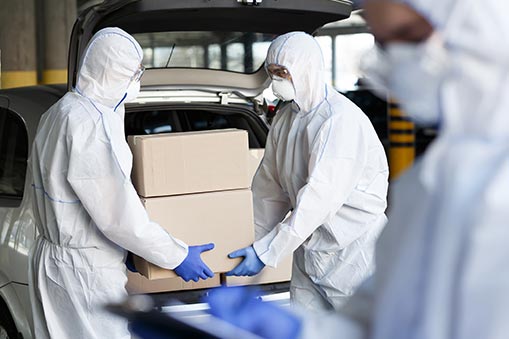
Joseph Giambrone, professor emeritus
Department of Poultry Science, College of Agriculture
Department of Pathobiology, College of Veterinary Medicine
Professor Emeritus Joseph Giambrone says any vaccine to be deployed extensively in the U.S. or elsewhere should receive approval only after rigorous testing for both safety and efficacy.
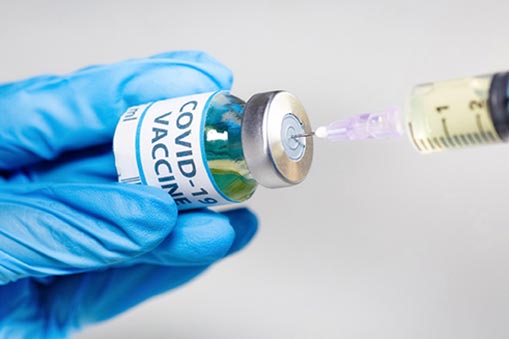
Dr. Andrea Perkins, clinical lecturer in infection control and biosecurity
College of Veterinary Medicine
There are few issues more critical in the age of COVID-19 than biosecurity, or the proper methods and practices to help people and pets from contracting the disease.

Dr. Bruce Smith, director of the Auburn University Research Initiative in Cancer
College of Veterinary Medicine
With more questions than answers currently circulating about the current global pandemic of the COVID-19 virus, Dr. Bruce Smith discusses zoonotic diseases, their origins and how humans can better deal with them.
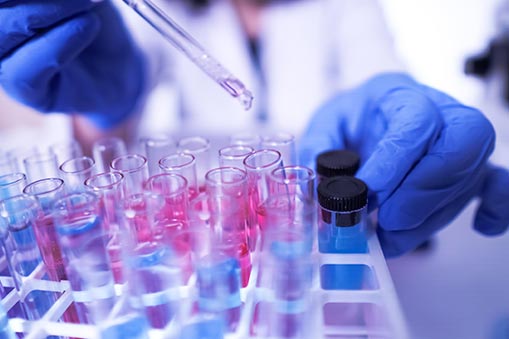
Joseph Giambrone, professor emeritus
Department of Poultry Science, College of Agriculture
Department of Pathobiology, College of Veterinary Medicine
Professor Emeritus Joseph Giambrone discusses potential COVID-19 vaccines in development and says few, if any, viral vaccine experts believe an effective vaccine will be developed before the first of the year.
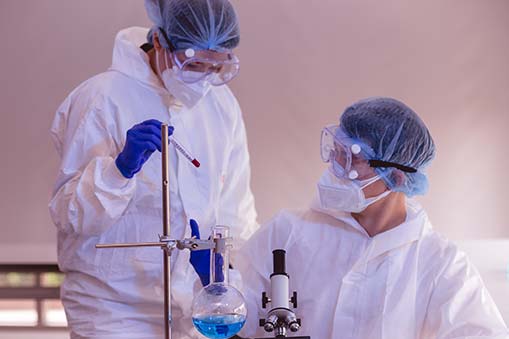
Mike Greene, associate professor, Department of Nutrition, Dietetics and Hospitality Management
College of Human Sciences
The COVID-19 pandemic has caused breaks in the food supply chain, resulting in shortages of products, like beef and pork, or even elevated prices of meats in some areas. Between scarcity and rising prices, Americans may be considering a change in their food consumption. Mike Greene has conducted extensive research on the Mediterranean diet, a more plant-based food plan. He even created a Mediterranean diet tour of Italy and Greece, giving students an immersive study abroad experience at the source of the diet trend. Greene explains why it could be beneficial for Americans to rethink the foods they currently eat.
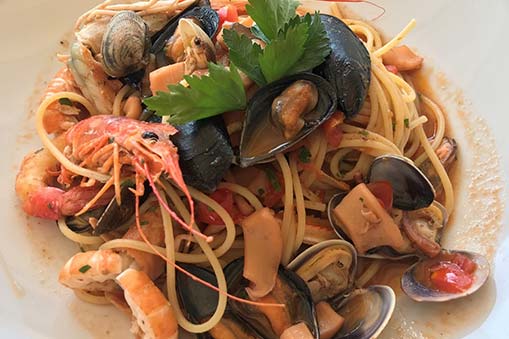
Onikia Brown, associate professor and registered dietitian, Department of Nutrition, Dietetics and Hospitality Management
College of Human Sciences
The African-American community has been hit harder by the COVID-19 pandemic than other populations. Onikia Brown shares the health and environmental factors that drive these disproportionate results.
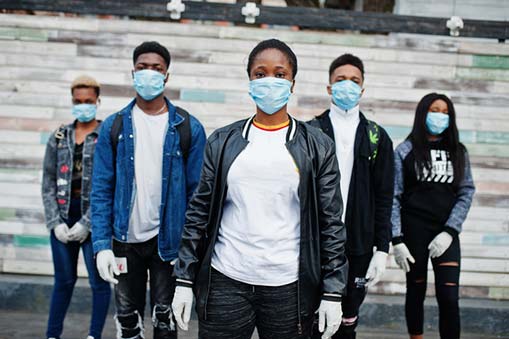
Joseph Giambrone, professor emeritus
Department of Poultry Science, College of Agriculture
Department of Pathobiology, College of Veterinary Medicine
Professor Emeritus Joseph Giambrone discusses how new rapid antigen tests may be underestimating the true prevalence of COVID-19 in specific populations. He compares the role of antigen tests versus real-time assay tests.
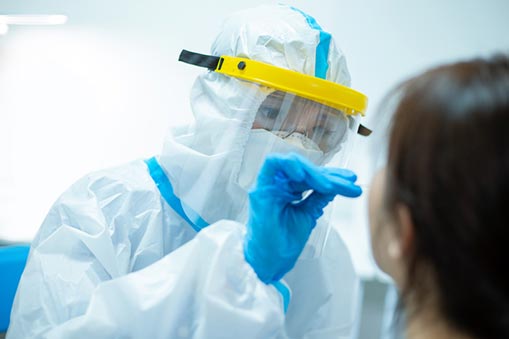
Caralise Hunt, associate professor and associate dean for academic affairs
School of Nursing
Since the days of Florence Nightingale during the Crimean War and Clara Barton during the Civil War, nurses have been an integral part of the care and treatment of the sick and wounded. The COVID-19 pandemic has shed a spotlight on nurses and reinforced the essential role they have in hospitals and clinics worldwide. Caralise Hunt discusses the spotlight and what Auburn is doing to prepare young people for the future of health care.
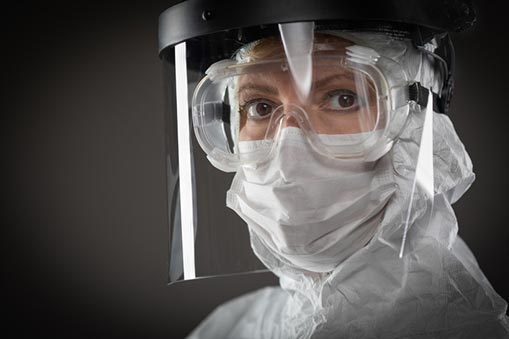
Lindsay Tan, interior design program coordinator and associate professor
Ana Plana, culinary science lecturer
College of Human Sciences
Social distancing guidelines to decrease the spread of COVID-19 have many people spending much more time than usual at home. Many may be drawn to the idea of farming in their backyard and need to be aware of the risk of contracting foodborne illness through unsafe preparation. Lindsay Tan and Ana Plana share their expertise with novice backyard farmers on how to cultivate a safe, healthy backyard garden.
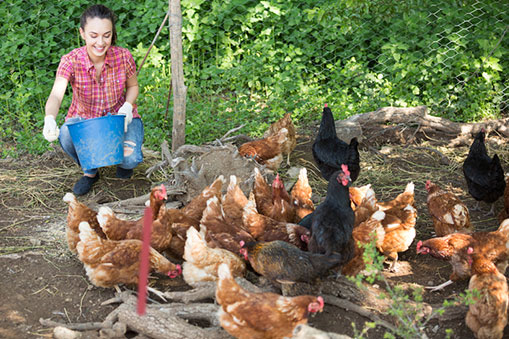
Kimberly Braxton Lloyd, associate dean of clinical affairs and outreach
Harrison School of Pharmacy
Auburn’s Harrison School of Pharmacy responded to the COVID-19 pandemic by making hand sanitizer for the community. It continues to be a resource for pharmacies throughout Alabama and the country seeking support and answers under new operations. Kimberly Braxton Lloyd, the school’s associate dean of clinical affairs and outreach, talks about the school’s efforts in response to this unprecedented situation.
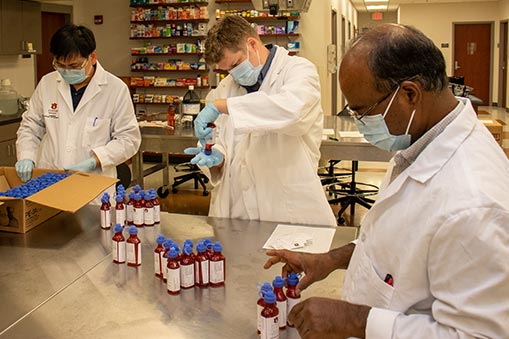
Bob Norton, chair of the Food System Institute’s Food and Water Defense Working Group, professor of poultry science
College of Agriculture
Ken Macklin, professor of poultry science
College of Agriculture
Dianna Bourassa, assistant professor of poultry science
College of Agriculture
Auburn poultry science faculty members Bob Norton, Ken Macklin and Dianna Bourassa comment on the state of the food supply, poultry plant processing operations and the situation faced by poultry producers.
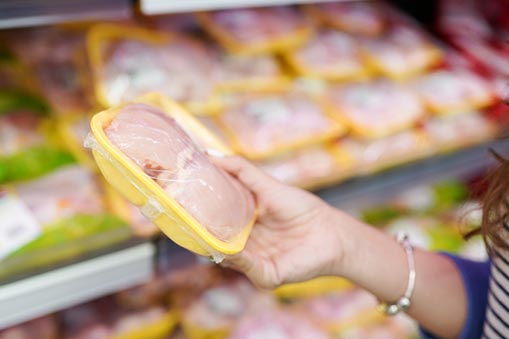
Joseph Giambrone, professor emeritus
Department of Poultry Science, College of Agriculture
Department of Pathobiology, College of Veterinary Medicine
Professor Emeritus Joseph Giambrone discusses coronavirus immunity, the importance of antibody testing and the development of vaccines. He addresses: Do we know for sure if a person is immune to COVID-19 after infection? What percentage of the U.S. population will be immune after this first wave of infections is over? Will immunity last over time, or will it fade?, and, if and when a vaccine can produce immunity and stop the pandemic.
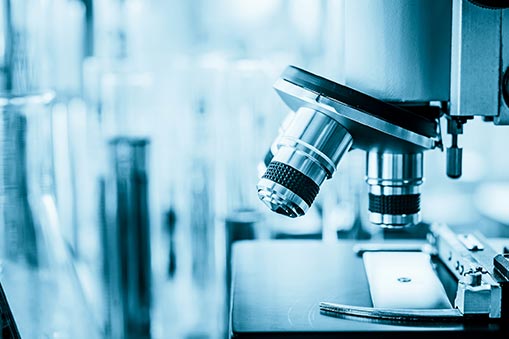
Joanna Sztuba-Solinska, assistant professor of biological sciences
College of Sciences and Mathematics
Joanna Sztuba-Solinska, assistant professor of biological sciences in Auburn University’s College of Sciences and Mathematics, gives an update on her research of SARS CoV-2—the virus that causes COVID-19—talks about how warming temperatures can affect the pandemic and what the future of the coronavirus may look like for everyone.
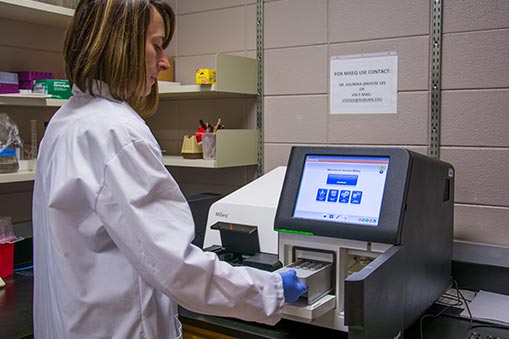
Health Administration Professors Cathleen Erwin, Geoffrey Silvera, Haneen Ali and Lori Redding
College of Liberal Arts
Auburn University Health Administration professors Cathleen Erwin, Geoffrey Silvera, Haneen Ali and Lori Redding discuss the impact of the coronavirus on the U.S. healthcare system and how it could affect everyone going forward.
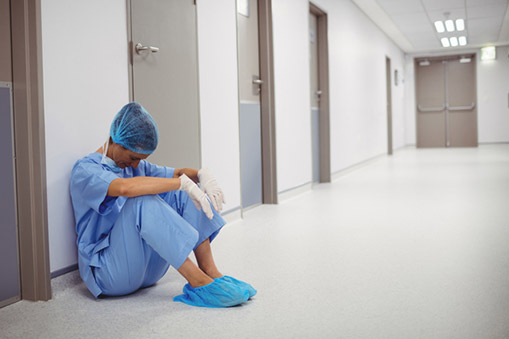
Robert Judd, chair of the Boshell Diabetes and Metabolic Disease Research Program, professor of pharmacology
College of Veterinary Medicine
Robert Judd talks about the importance of preventative measures for diabetics and how COVID-19 increases the risk of serious complications for these patients.
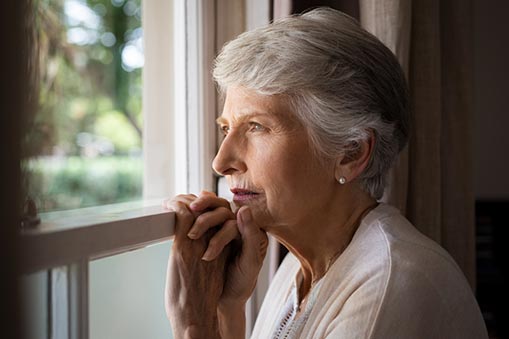
Scott Ketring, associate professor
Lauren Ruhlmann, assistant professor
College of Human Sciences
In order to serve the health and relational needs of the public while following guidelines to slow the spread of COVID-19, the Auburn University Marriage and Family Therapy program has introduced Technology Assisted Family Therapy Services, or TAFTS.

Rafay Ishfaq, the W. Allen Reed Associate Professor of supply chain management
Harbert College of Business
Rafay Ishfaq has conducted research on the benefits and challenges of providing healthcare delivery via telemedicine—in which patients uses a smart phone app or home computer to connect with a doctor via video. He says telemedicine can help with delivering healthcare to non-coronavirus patients as a way to meet the capacity and inventory challenges faced by healthcare supply chains.

Joseph Giambrone, professor emeritus
Department of Poultry Science, College of Agriculture
Department of Pathobiology, College of Veterinary Medicine
Professor Emeritus Joseph Giambrone offers his thoughts about how coronaviruses will never be totally eradicated and how pandemics normally occur in waves of infection. He comments on the stability of the SARS CoV-2 virus, how best to mitigate transmissions and says constant surveillance of wild animals and those sold in live animal markets is a necessity.
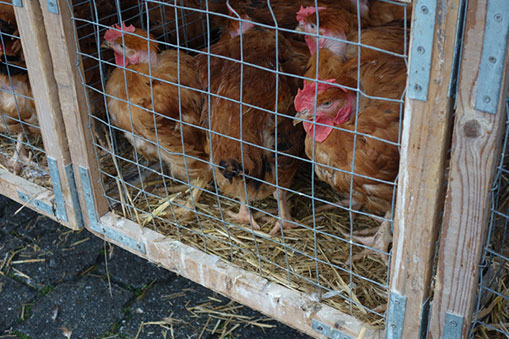
Dr. Constantinos Kyriakis, assistant professor in the Department of Pathobiology
College of Veterinary Medicine
Veterinarian Dr. Constantinos Kyriakis discusses the role of vaccines in protecting against COVID-19 and helping prevent the spread of the novel coronavirus, as well as the unique challenges scientists are facing in developing safe, effective vaccine candidates.
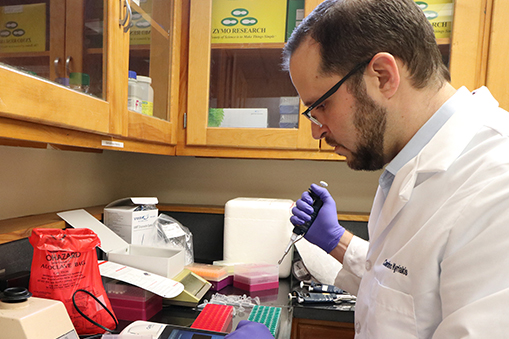
Dr. Ellen Behrend, acting director of the Veterinary Teaching Hospitals
College of Veterinary Medicine
Veterinarian Dr. Ellen Behrend breaks down recent news about pets infected with COVID-19 and offers best practices for keeping pets and yourself healthy during the pandemic.
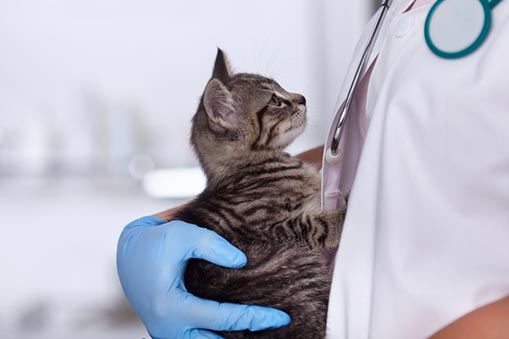
Bob Norton, chair of the Food System Institute’s Food and Water Defense Working Group, professor of poultry science
College of Agriculture
Bob Norton discusses how modeling is conducted when estimates are made on the possible number of COVID-19 deaths. He also provides information on why certain states are seeing higher numbers, and tells why the food supply is safe.

Michael Zabala, assistant professor
Tom Burch, senior lecturer
Samuel Ginn College of Engineering
A group of Auburn engineers has developed a way to quickly and inexpensively convert CPAP machines into ventilators, one of the most important tools hospitals have for helping COVID-19 patients.
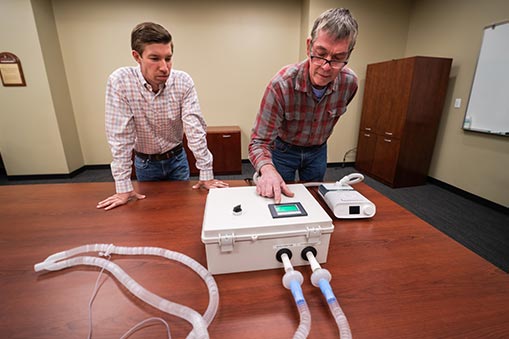
Robin Farrell, associate clinical professor
School of Nursing
At this time, the U.S. has the most confirmed cases in the world and ranks sixth in the number of total deaths from the virus. With limited information regarding risk factors for severe disease, Robin Farrell, a veteran nurse practitioner, offers her expertise on protecting ourselves and others.
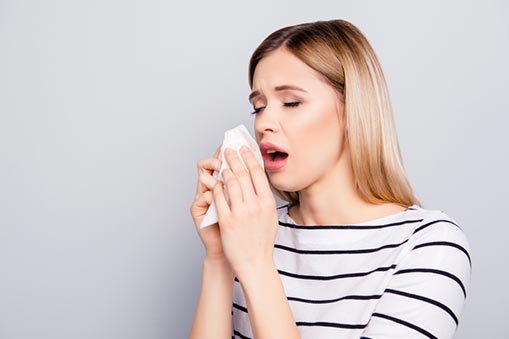
Spencer Durham, associate clinical professor
Harrison School of Pharmacy
As health care providers and patients adjust to new procedures with the appearance of the coronavirus, Spencer Durham, named to Gov. Kay Ivey’s Coronavirus Task Force, offers some tips and practices.

Joanna Sztuba-Solinska, assistant professor of biological sciences
College of Sciences and Mathematics
Joanna Sztuba-Solinska details the complexities of SARS CoV-2 and the disease it causes, COVID-19. She discusses what makes the virus different, why there are unknowns about a potential vaccine and how COVID-19 infections might fare as temperatures warm in the U.S.
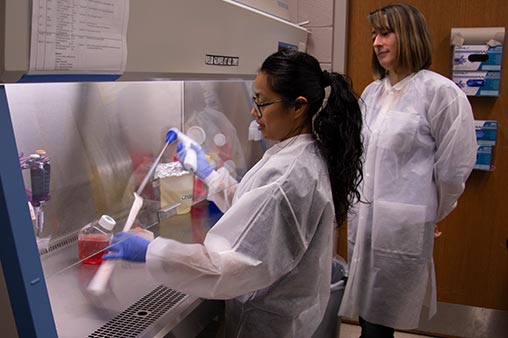
Kyle Kostelecky, associate professor of human development and family studies
College of Human Sciences
Kyle Kostelecky, an expert in gerontology, explains the challenges of caring for the elderly during quarantine due to the COVID-19 pandemic.
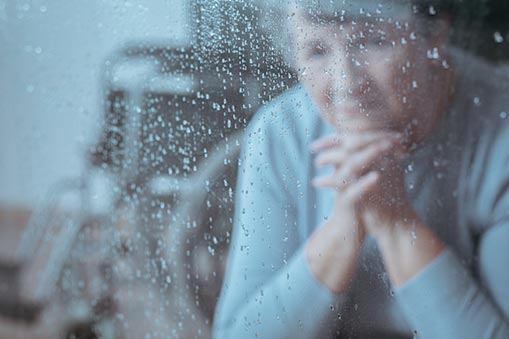
Nadia Bhuiyan, assistant clinical faculty member at Auburn University and director of Auburn University’s Psychology Services Clinic
Nadia Bhuiyan offers insight and several resources and tips for how students, faculty and staff can cope with anxiety and possible depression associated with the COVID-19 pandemic.
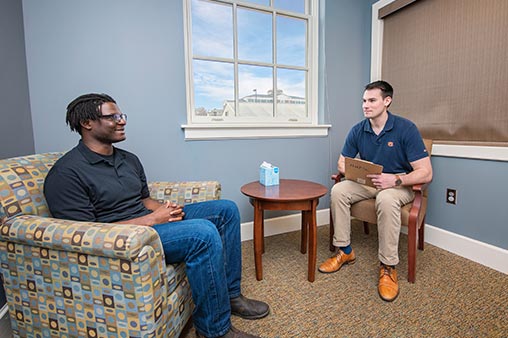
Bob Norton, chair of the Food System Institute’s Food and Water Defense Working Group, professor of poultry science
College of Agriculture
Bob Norton says the U.S. food supply is safe and offers tips on how consumers can best prepare their personal food supply. For those experiencing empty shelves in some grocery stores, he says many alternatives exist.
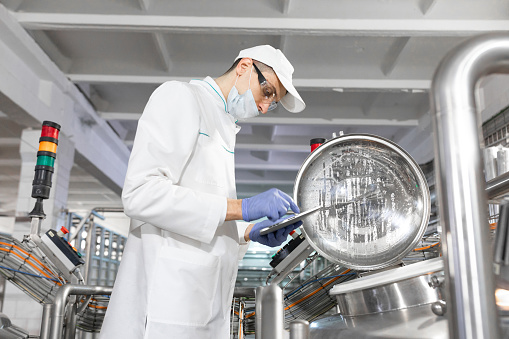
Lindsay Tan, associate professor and interior design program coordinator
College of Human Sciences
Lindsay Tan discusses how the design of certain places can affect the transmission of COVID-19, and in the wake of the alarm over the coronavirus, there are design elements that can help contain the outbreak.

Linda Gibson-Young, associate professor
School of Nursing
Linda Gibson-Young is often speaking about key signs for recognizing and diagnosing child asthma. Many times, asthma and allergies share similar symptoms, with the uncertainties in health care today, the public is questioning the difference.
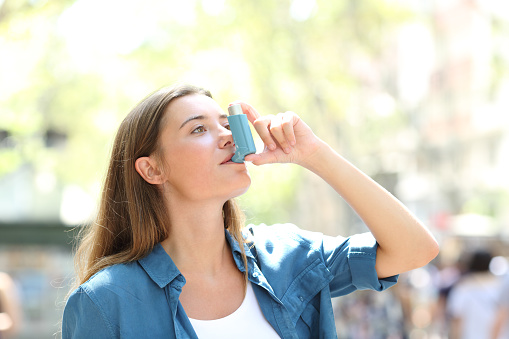
Erica Kierce, assistant clinical professor
School of Nursing
Linda Gibson-Young, associate professor
School of Nursing
Erica Kierce and Linda Gibson-Young share their expertise in how to help children and adolescents deal with anxiety during the COVID-19 pandemic.
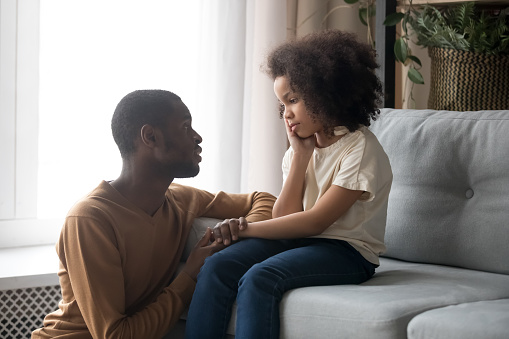
Marilyn Bulloch, associate clinical professor
Harrison School of Pharmacy
Marilyn Bulloch is an infectious disease expert and has been closely following the news about COVID-19 and its impact on pharmacists and patients.
